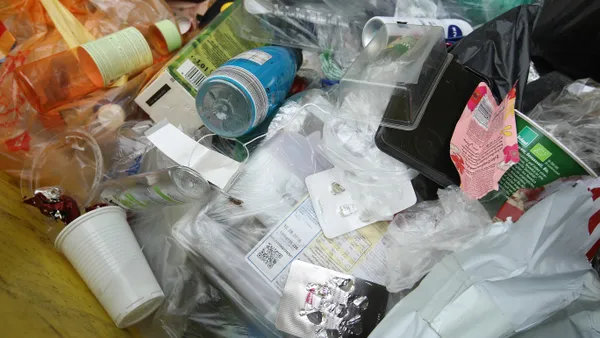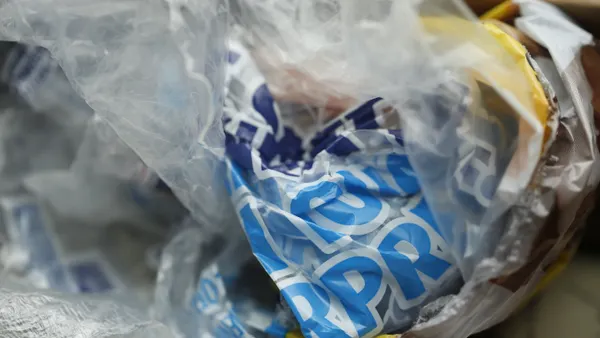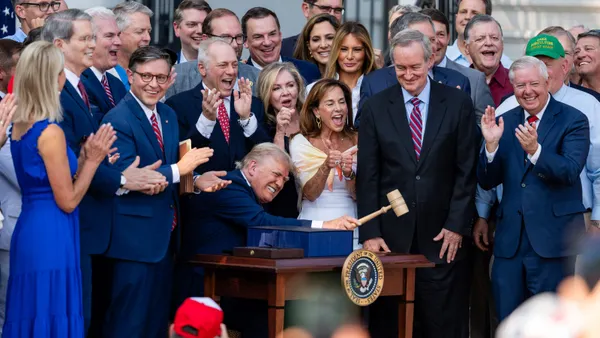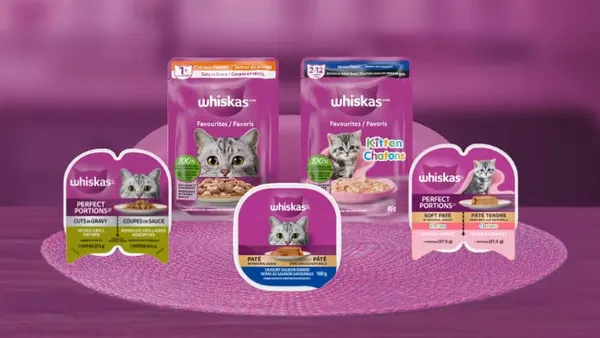UPDATE Jan. 12, 2018: Prime Minister Theresa May announced Thursday her intention to phase out all avoidable plastic within 25 years, as reported by The Guardian. May said she wants to extend the £0.05 (about $0.07) tax on plastic bags to smaller shops and wants research on a charge or tax for single-use plastic containers.
May also proposed urging grocery stores to have aisles with no plastic packaging where all food is sold loose, funding for “plastics innovation” and helping developing nations handle their plastic waste.
Additionally, Secretary of State for Environment Michael Gove indicated he was thinking about a £0.25 (about $0.34) charge for single-use coffee cups. Such a measure was not announced in May’s environmental speech, however. Environmental groups in the country were skeptical of the announcement, in part because May did not include hard targets and because there was no substantial discussion of a container redemption system, similar to "bottle bills" in the United States and other countries.
Dive Brief:
- A new report from Britain's parliament proposes a £0.25 (about $0.34) on every cup of coffee sold. As reported by The New York Times, the roughly 10% tax may be enough to convince more consumers to carry and use reusable cups.
- Coffee giant Starbucks announced it will be piloting a £0.05 (about $0.07) on disposable cups in 20-25 of its stores in central London. The trial is set to begin in February and last at least 3 months.
- Prime Minister Theresa May said this weekend she's considering a £0.05 tax on all single-use plastics in the country. May is expected to speak about the environment and environmental policy in a major speech this week, as reported by The Telegraph.
In 2015 we introduced the 5p charge on plastic carrier bags, we now see 9bn fewer bags being used. It's making a real difference. We want to do the same with single use plastics. Nobody who watched #BluePlanet2 will doubt the need for us to do something - and we will. #Marr
— Theresa May (@theresa_may) January 7, 2018
Dive Insight:
Over 80% of coffee consumed in the United Kingdom is in disposable, single-use coffee cups, according to a recent report. This results in 2.5 billion cups being disposed in the country annually — with more than half of those cups being tossed at work, according to Veolia. These numbers present a challenge, as there are just two facilities in Britain that have invested in the technology to separate the plastic lining from disposable paper coffee cups. Collection pilots have been launched in London's financial district and other select areas, but the majority of cups are still not being captured.
The tax on single-use plastic could prove effective in the U.K., however. A similar measure in 2015 that levied a tax on single-use plastic bags created an 83% decrease in the number of single-use plastic bags taken home. Interest is also growing in other solutions for plastic bottles such as local or national container deposit systems.
Given the success of previous programs in the U.K. to reduce plastic use, it is possible that imposing taxes will be an effective way to alter consumer behavior. Other governments, including cities in the United States, have levied fees on bags, and some governments have taken especially stringent measures. However, the concept isn't always popular among product manufacturers and fining consumers may not be enough to keep plastic or other debris out of oceans and other waterways.
May's getting directly involved and pushing for a tax on single-use plastic comes at an interesting time, politically. The prime minister has not benefited from high approval ratings as the country negotiates leaving the European Union. The European Council adopted in mid-December a resolution on transitioning toward a circular economy. As the EU and the UK move forward, it will be interesting to see how solid waste management and recycling plans diverge.









